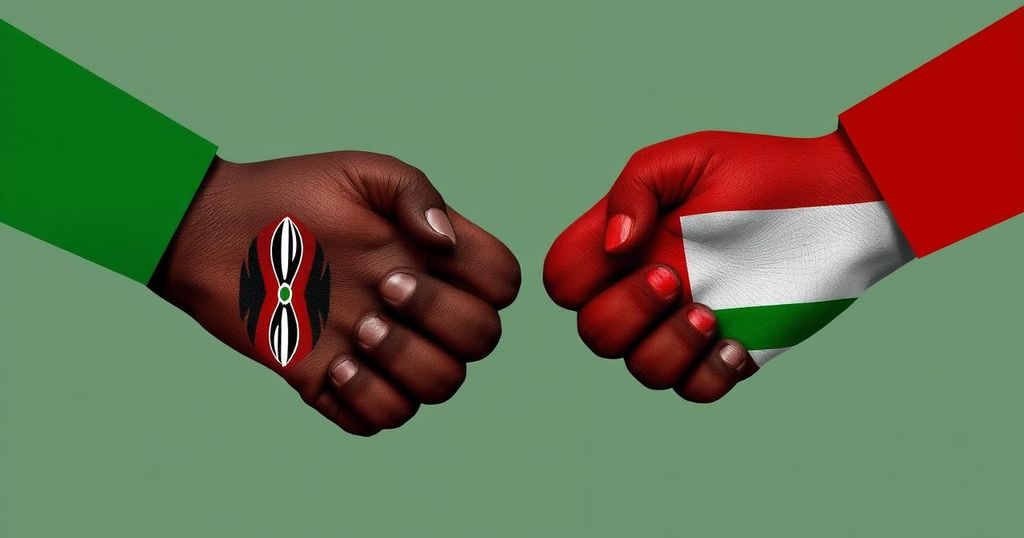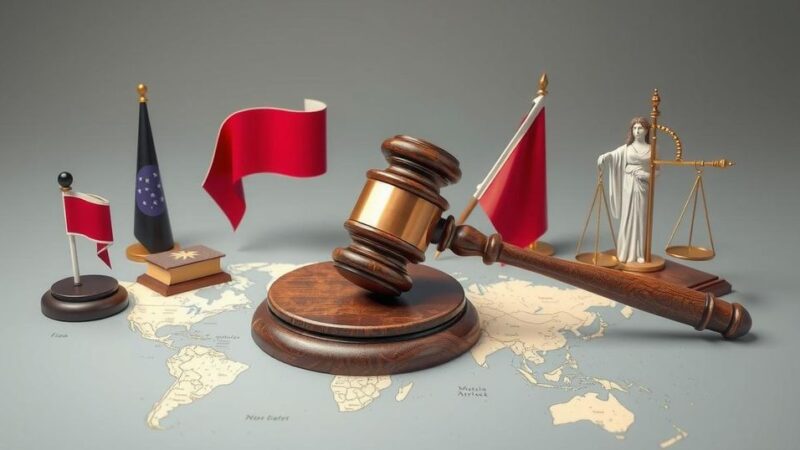Kenya is negotiating a $1.5 billion commercial loan from the UAE with an 8.25% interest rate and seven-year term, as part of efforts to diversify finances following recent protests and IMF disbursement delays. Finance Minister John Mbadi highlights the loan’s attractiveness compared to Eurobonds but notes the IMF’s concerns regarding potential risks. The loan would help meet foreign borrowing goals and reduce local borrowing.
Nairobi – Kenya is engaged in negotiations with the United Arab Emirates (UAE) regarding a prospective commercial loan amounting to $1.5 billion, featuring an interest rate of 8.25% with a seven-year repayment term. Finance Minister John Mbadi announced these discussions during a press conference held on Wednesday. This initiative is part of Kenya’s strategy to broaden its financial sources following violent protests, which compelled the government to retract proposed tax increases and led to deferments in fund disbursement from the International Monetary Fund (IMF). Minister Mbadi indicated, “This loan is cheaper than the Eurobond we borrowed at 10.7%,” referring specifically to a dollar-denominated bond issued in February, designed to partially repurchase parts of a maturing $2 billion Eurobond. Furthermore, he remarked that while the government is currently in talks with the IMF, there are existing concerns from the lender regarding the proposed commercial loan from the UAE. “There are issues to be discussed, including with the IMF, which had expressed some reservations, because we are talking about this being an external loan and is dollar denominated, it may expose us to additional risk,” Mr. Mbadi stated. Nevertheless, he argued that the UAE loan is more financially viable than other borrowing options available to the government, especially the Eurobonds. As of now, the Kenyan government has established a foreign borrowing target for the fiscal year at 168 billion shillings (approximately $1.31 billion). Should the UAE loan materialize, it would equate to 195 billion shillings, thereby allowing the government to mitigate local borrowing needs. President William Ruto’s administration is focused on lowering high lending rates to bolster business operations and stimulate economic growth, with the central bank’s benchmark lending rate recently reduced by 75 basis points to 12%. Despite this reduction, Mr. Mbadi expressed that the rate remains elevated, ideally needing to be at 10% or below. Under President Ruto’s leadership since September 2022, Kenya has strengthened its bilateral relations with the UAE. For instance, the UAE’s Abu Dhabi National Oil Company (ADNOC) and Emirates National Oil Company were selected by Ruto’s government last year to supply oil to Kenya under extended credit terms, signaling a departure from the traditional open tender process. The UAE has also previously aided Ethiopia with a $1 billion support package in 2018 and recently announced an $817 million currency swap line with Ethiopia. Moreover, the UAE has forged a partnership with Egypt to develop key coastal regions, expected to attract approximately $35 billion in investments. ($1 = 128.5000 Kenyan shillings) (Reporting by Duncan Miriri; Editing by Angus MacSwan)
The article outlines Kenya’s ongoing negotiations for a significant loan with the United Arab Emirates as part of efforts to diversify its financing sources. Following a recent wave of protests that resulted in the shelving of proposed tax hikes—thereby affecting the government’s fiscal strategy—the country is seeking financial stability through alternative borrowing methods. The Finance Minister’s comments illuminate the loan’s attractiveness compared to previous Eurobond borrowings, while also highlighting the potential concerns raised by the IMF regarding risks associated with an external dollar-denominated loan. This context informs the country’s broader financial strategy under President Ruto’s administration, including recent adjustments to lending rates aimed to enhance economic growth.
In conclusion, Kenya’s negotiations for a $1.5 billion loan with the UAE represent a strategic move to secure more favorable financing conditions in the wake of local unrest and strained funding from international bodies. The potential loan offers a lower interest rate compared to previous Eurobonds, although there are pending discussions regarding risks associated with dollar-denominated borrowing. The Kenyan government’s efforts to stabilize its economic environment amid these challenges underscore the importance of diversifying funding sources and improving lending conditions for businesses in the nation.
Original Source: www.zawya.com







